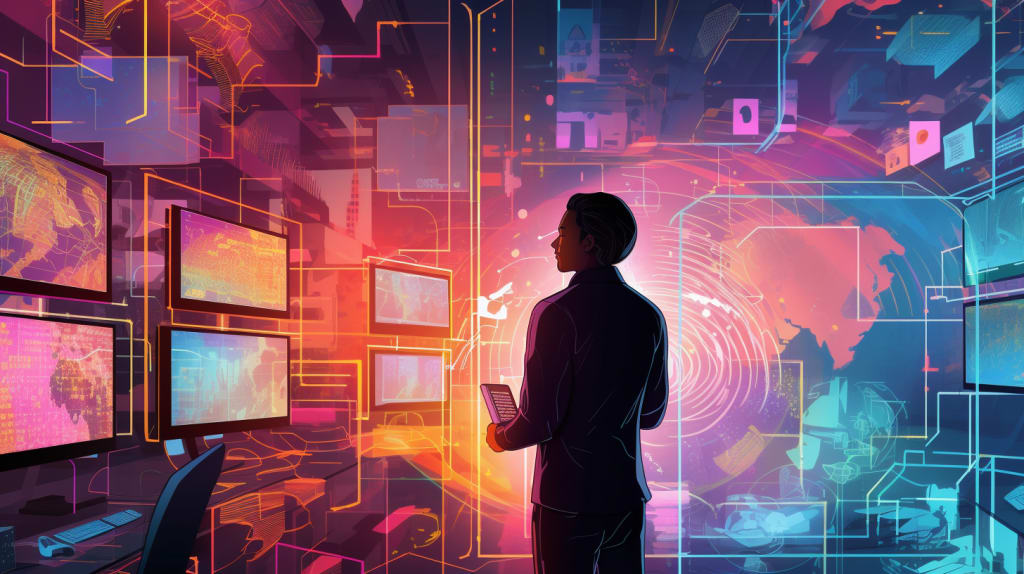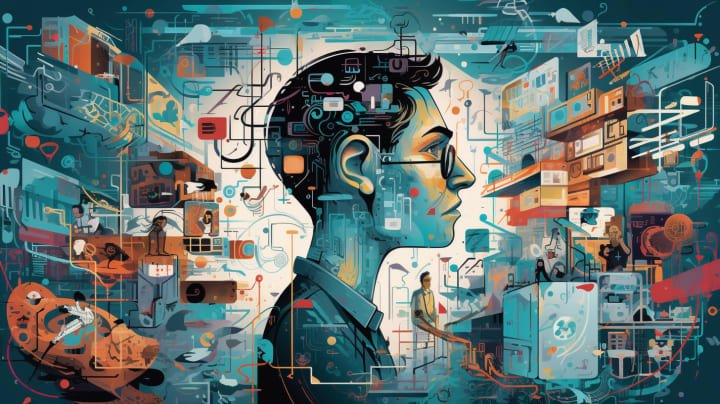
Introduction
Artificial intelligence, often referred to as AI, has come a long way from its theoretical origins to become a transformative force in our world. The AI journey, from theory to reality, has been marked by significant milestones, challenges, and groundbreaking innovations. In this article, we will delve into the captivating story of AI, exploring its evolution and the impact it has had on various industries. Join us on this enlightening expedition as we unravel the mysteries of the AI journey.
The AI Journey: From Theory to Reality

Artificial intelligence has captured the imagination of researchers, scientists, and tech enthusiasts for decades. The concept of creating machines that can mimic human intelligence and perform complex tasks has always been a subject of fascination. However, it wasn't until the latter half of the 20th century that significant advancements started to materialize, paving the way for the AI revolution we witness today.
1. The Birth of AI: From Dreams to Algorithms
The AI journey began with the pioneers who laid the groundwork for this extraordinary field. In the 1950s, scientists such as Alan Turing and John McCarthy introduced fundamental concepts that would shape the development of AI. Turing proposed the idea of a universal machine capable of mimicking any other machine's behavior, while McCarthy coined the term "artificial intelligence" and organized the Dartmouth Conference, widely regarded as the birth of AI as a field of study.
2. Early Challenges: The AI Winter
As AI research progressed, early optimism gave way to a period known as the "AI winter." During the 1970s and 1980s, the high expectations surrounding AI failed to materialize, leading to a decline in funding and interest. The limited computational power and inadequate algorithms of the time hindered the progress of AI, dampening enthusiasm and resulting in a slowdown in research activities.
3. The Rise of Machine Learning: Unleashing the Power of Data
The resurgence of AI came in the 1990s, fueled by breakthroughs in machine learning techniques. Machine learning empowered AI systems to learn from vast amounts of data, enabling them to improve their performance over time. Algorithms like neural networks and decision trees revolutionized the way machines could process and understand information, propelling AI towards new horizons.
4. Deep Learning: Unlocking Hidden Potentials
Deep learning emerged as a game-changer in the AI landscape. This branch of machine learning, inspired by the structure and function of the human brain, introduced neural networks with multiple hidden layers. Deep learning algorithms brought unprecedented capabilities to AI systems, allowing them to excel at tasks such as image recognition, natural language processing, and even playing complex games like Go.
5. AI in Everyday Life: From Smart Assistants to Autonomous Vehicles
As AI continued its journey, it began permeating various aspects of our daily lives. Smart assistants like Siri and Alexa became household names, capable of understanding and responding to natural language queries. Autonomous vehicles started navigating our roads, showcasing the power of AI in real-world applications. From healthcare to finance, AI started transforming industries, offering new opportunities for efficiency, accuracy, and innovation.
6. Ethical Considerations: Balancing Progress with Responsibility
With the rapid advancement of AI, ethical concerns have emerged. The potential impact on jobs, data privacy, and algorithmic biases are among the key issues being discussed. As AI becomes more integrated into our society, it is crucial to address these challenges and ensure responsible development and deployment of AI technologies.
FAQs about The AI Journey: From Theory to Reality
Q1. How has AI evolved over time?
Over the years, AI has evolved from theoretical concepts to practical applications. Advancements in machine learning, deep learning, and the availability of vast amounts of data have propelled AI forward, enabling it to perform complex tasks and transform various industries.
Q2. What are some notable milestones in the AI journey?
Some notable milestones in the AI journey include the birth of AI as a field of study, the AI winter, the rise of machine learning, the emergence of deep learning, and the integration of AI in everyday life through smart assistants and autonomous vehicles.
Q3. What impact has AI had on industries?
AI has had a profound impact on industries across the board. It has improved efficiency, accuracy, and innovation in areas such as healthcare, finance, manufacturing, and transportation. AI technologies are enabling businesses to make data-driven decisions, automate processes, and create personalized experiences for customers.
Q4. What ethical considerations surround AI?
Ethical considerations surrounding AI include concerns about job displacement, data privacy, and algorithmic biases. It is essential to address these issues and develop frameworks that ensure responsible AI development, deployment, and usage.
Q5. What is the future of AI?
The future of AI holds immense potential. As technology continues to advance, AI is expected to play a vital role in areas such as healthcare, climate change, robotics, and more. The ongoing research and development in AI promise exciting possibilities that can reshape our world in remarkable ways.
Q6. How can individuals prepare for the AI-driven future?
Preparing for an AI-driven future involves acquiring skills that complement AI technologies, such as data analysis, critical thinking, and creativity. Lifelong learning and adaptability will be crucial in navigating the changing landscape of work and harnessing the benefits of AI.
Conclusion
The AI journey from theory to reality has been a remarkable one, marked by significant breakthroughs, challenges, and ethical considerations. AI has transformed the way we live, work, and interact with technology. As we look to the future, it is essential to embrace the possibilities that AI brings while ensuring its responsible and ethical development. The AI journey continues, and its impact on our society will only deepen as we navigate the exciting frontiers of artificial intelligence.





Comments
There are no comments for this story
Be the first to respond and start the conversation.